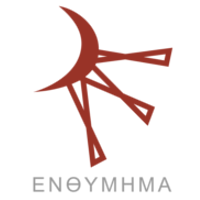Diegetic Biographism: Authorial Intrusions and Interdiscursive Anchorages Producing a Rhetoric of Authenticity in Three Books by Annie Ernaux
DOI:
https://doi.org/10.13130/2037-2426/8429Parole chiave:
Ernaux, biography, autobiography, authenticityAbstract
After publishing three relatively unnoticed novels, French writer Annie Ernaux stopped labeling her books as novels and adopted a documentary and autobiographical rhetoric. After this autobiographical turn, Ernaux won prestigious prizes and reached a wider audience. This article is an attempt to map out the narrative devices that instigated the impression of urgency, authenticity, and biographical referentiality that the critics praised. Positioning Ernaux’s autobiographical project in relation to the concept of performative biographism, the neologism «diegetic biographism» is proposed for her systematic metanarrative commentary and referential play. Increased reader engagement is thus regarded as a function of Ernaux’s anchoring her narration in an ostensibly biographical reference world.
Downloads
Riferimenti bibliografici
Alliot, Bernard. “L’ombre du père.” Le Monde, 3 Feb. 1984.
Alphant, Marianne. “Une femme apparaît.” Libération, 21 Jan. 1988.
Balmer, Monique. Untitled article. Femina Matin, 13 Mar. 1988.
Bechter-Burtscher, Béate. Entre affirmation et critique. Le développement du roman policier algérien d’expression française. Paris: Centre international d’études francophones, Université de Paris Sorbonne, 1998.
Behrendt, Poul. Dobbeltkontrakten: en æstetisk nydannelse. Copenhagen: Gyldendal, 2006.
Bernstein, Michelle. “Annie Ernaux. Souvenirs d’en Normandie.” Libération, 1 Mar. 1984.
– – –. “Annie Ernaux. Mémoire d’une jeune femme coincée.” Libération, 16 Jan. 1992.
Camus, Albert. L’étranger. Paris: Gallimard, 1942.
Charpentier, Isabelle. “De corps à corps. Réceptions croisées d’Annie Ernaux.” Politix vol. 7, no. 27, 1994.
D.D. “Génération non spontanée.” Le Canard enchaînée, 7 Mar. 1984.
Doubrovsky, Serge. Fils. Paris: Galilée, 1977.
Ernaux, Annie. La place. Paris: Gallimard, 1983.
– – –. Une femme. Paris: Gallimard, 1988.
– – –. Passion simple. Paris: Gallimard, 1991.
Fludernik, Monika. Introduction to Narratology. New York: Routledge, 2009.
Fondo-Valette, Madeleine. ”Le militant à l’ère du soupçon d’après Tigre en papier d’Olivier Rolin.” Fiction et engagement politique : la représentation du parti et du militant dans le roman et le théâtre du XXe siècle, edited by Jeanyves Guérin, Paris : Presses Sorbonne Nouvelle, 2008, pp. 263-270.
G.P. “Le dialogue impossible.” Paris Match, 24 Feb. 1984.
Genette, Gérard. Figures III. Paris: Seuil, 1972.
– – –. Seuils. Seuil, 1987.
– – –. Narrative Discourse Revisited. Ithaca: Cornell UP.
Grainville, Patrick. “Une sainteté du désir et du cœur.” Le Figaro, 13 Jan. 1992.
Haarder, Jon Helt. ”Ingen fiktion. Bara reduktion. Performativ biografism som konstnär-lig strömning kring millennieskiftet.” TFL, no. 4, 2007.
Hamon, Philippe. ”Un discours contraint.” Littérature et réalité, edited by Roland Barthes et al., Paris: Seuil, 1982, pp. 119-181.
Harshaw, Benjamin. ”Fictionality and Fields of Reference.” Poetics Today, vol. 5, no. 2, 1984, pp. 227-251.
Josselin, Jean-François. ”Un gros chagrin.” Nouvel Observateur, 9-15 Jan. 1992.
Lejeune, Philippe. Le pacte autobiographique. Paris: Seuil, 1975.
– – –. “The autobiographical contract.” French Literary Theory Today, edited by Tzvetan Todorov, New York: Cambridge UP, 1982, pp. 192-222.
Maingueneau, Dominique. “Interdiscours.” In Dictionnaire d’analyse du discours, edited by Patrick Charaudeau and Dominique Maingueneau. Paris: Seuil, 2002.
Mall, Laurence. “‘Moins seule et factice’: la part autobiographique dans Une Femme d’Annie Ernaux.” The French Review, vol. 69, no. 1, 1995.
de Martinoir, Francine. “Annie Ernaux: La Place.” La Nouvelle Revue Française, No. 375, 1 Apr. 1984, pp. 111–114.
Melkonian, Martin. “Efficace et crue.” La Quinzaine littéraire, 1-15 Mar. 1988.
Nourissier, François. “Annie Ernaux: bouleversante.” Figaro Magazine, 10 Mar. 1984.
“Passion simple.” L’Express, 30 Jan.–5 Feb. 1992.
Rimmon, Shlomith. “A Comprehensive Theory of Narrative: Genette's Figures III and the Structuralist Study of Fiction.” Poetics and Theory of Literature no. 1, 1976, pp. 33-62.
Rinaldo, Angelo. “La mort du père.” L’Express, 27 Jan. 1984.
Rossi-Dutheil, Maryse. “La catharsis d’une conscience.” L’Éveil Provence, 2 Apr. 1988.
Savignieau, Joysane. “Le retour d’Annie Ernaux.” Le Monde, 15 Jan. 1988.
– – –. “Le courage d’Annie Ernaux.” Le Monde, 17 Jan. 1992.
Sipirot, Pierre. “Au nom du père.” Le Figaro, 8.3 Mar. 1984.
Wurmser, André. “L’injustice majeure.” L’Humanité, 27 Feb. 1984.
Dowloads
Pubblicato
Come citare
Fascicolo
Sezione
Licenza

Except where otherwise noted, the content of this site is licensed under a Creative Commons Attribution 4.0 Unported License.
Accettato 2017-12-27
Pubblicato 2017-12-31





